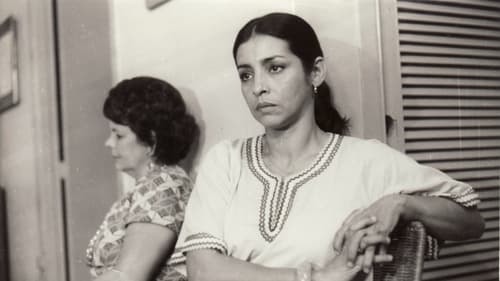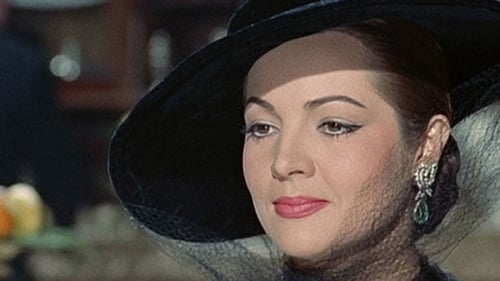House Swap (1985)
장르 :
상영시간 : 1시간 43분
연출 : Juan Carlos Tabío
시놉시스
Gloria, Yolanda's mother, exchanges their old house in Guanabacoa for a modern apartment in Vedado to keep Yolanda away from her boyfriend, but her plans soon backfire.

A superstitious middle-aged woman falls in love with a taxi driver, while trying to learn the identity of the unseen person tossing eggs at her.

Javier Argüelles, an opportunistic young man from Cuban middle class, survives all kind of political changes in Havana, from 1932 to 1959, while his brother Darío is persecuted and killed because of his leftist ideas.

The Castro revolution was just consolidating its power when, in 1961, over 100,000 students were sent from their schools into the countryside to teach the peasants there how to read. Coinciding with the Bay of Pigs invasion, in this docudrama, 15-year-old Mario (Salvador Wood) has come to a tiny village in the Zapata swamps and gradually wins the villagers over to his task. At the same time, he receives an education in the realities of rural life from the hard-working peasants.

Teresa is overwhelmed: with a husband, three young sons, a job as a crew leader in a textile factory, and volunteer commitments as cultural leader of her union. Her husband, Ramón, wants more of her attention; her feelings are mixed, wanting domestic peace, feeling responsibilities to the revolution, and wanting to control her own life beyond doing dirty dishes. They separate; he begins an affair. When he wants a reconciliation, she asks what his response would be if she'd had an affair too. "But men are different," is his reply. He's failed her test, and to hold on to independence and self-respect, she remains uncompromising and hard-edged.

A poor, but very lucky man in the cock fighting, is hired by a rich man, but both are in love with the same woman

In 1914, during World Ward I, Amada, a bourgeois wife, falls in love with her cousin Marcial, a young idealist who is fighting against the Cuban regime in power.

A young couple find out that their parents (her father and his mother) are having a romance. A series of problems arise because the young couple can't accept that relationship.

Mariquilla is a beautiful gypsy who is in love with Lucas, a soldier of the garrison in the Alhambra, but her father wants to marry her with Don Cosme, a rich old clerk for the service of the mayor. Soon, the girl asks for help to the governor of Granada, a gentleman who has always had a great adoration for the girl.

A woman, after committing a murder, flees into a church, confessing her life story to a priest.

A prestigious theater group in crisis prepares for the staging of a famous love tragedy. Mirtha, an actress marked by frustration, decides to leave the theater when a guest conductor offered a starring role. The incorporation of young actors, unscrupulous, and an inspector trigger a series of situations that will endanger the reputation and power of the actress who heads the group.

When her country is taken over by socialist revolutionaries, a wealthy woman can't bear to give up all of her wealth and possessions to the new government, so she hides all of her treasures in the 12 chairs of a dining-room set. After her death her nephew finds out what she had done and, since the chairs had been "nationalized" and are now in the possession of a dozen different people, he sets out to track them down and get the treasures he believes rightfully belong to him.

The story of Cecilia is a story of the society that dominated 19th-century Cuba, a society divided between whites, blacks, and those who were mixed, the mulattos. (Since the Spanish conquistadors killed off the Indian population in Cuba not long after they took over the island, there are no mestizos, or those of mixed-Indian blood in Cuba as in other Caribbean nations.) At any rate, the drama about the life and loves of Cecilia (Daisy Granados) takes place against the backdrop of graphically violent mistreatment of slaves and the rumors of a slave rebellion after the Cubans hear of slaves turning against their captors in Haiti.

In 1950s Havana, a romance blooms between two young revolutionaries whose clandestine printing press publishes pamphlets meant to stir up rebellion against the dictatorship of Fulgencio Batista. As their popularity grows, so, too, does their revolutionary zeal and their desire to mobilize other urban guerilla units.

The metamorphoses of Juan Quin Quin, in turns bullfighter, guerrilla fighter and sacristan.

Antonio is the leader of an underground armed group fighting in the village of Ronda against Napoleon's troops which have imposed French rule in 1808 Spain. Micaela is madly in love with Antonio but he is devoted to Carmen, the region's most beautiful gypsy who lives and sings at a local inn.

A sheltered young woman leaves her country home to find the only guy she ever kissed. Along the way, she meets a budding movie star and romance blooms.

Legendary superstar María Félix, stars in this melodrama noir playing the role of Raquel, a woman who has a passionate love affair with married aristocrat Antonio. However, a sensual sculpture untitled “The Kneeling Goddess” and modeled after Raquel will lead Antonio down a memory lane he'd rather soon forget.

A musical drama featuring a tragic love story. Relates a singer's rise to fame and her subsequent downfall because of the death of her lover. She manages to return to the stage only to die after her first public performance.

On New Year's Eve 1899, Soledad is peddling violets in a Madrid busy street when she meets aristocrat Fernando. The couple falls in love but their different social backgrounds threatens the relationship. Fernando is under constant pressure from his older brother Alfonso who reminds him of his duties including his engagement to Magdalena, a countess. Disregarding all social conventions and scandalizing high society, Fernando sets up Soledad in a plush apartment and announces their marriage plans.

A bourgeois Cuban family of aristocratic origin locks itself into its mansion when the Cuban Revolution comes to power, waiting for the new regime to be overthrown. As time passes, they regress to older and older systems of policital order, from capitalism to feudalism to "primitive savagery."










